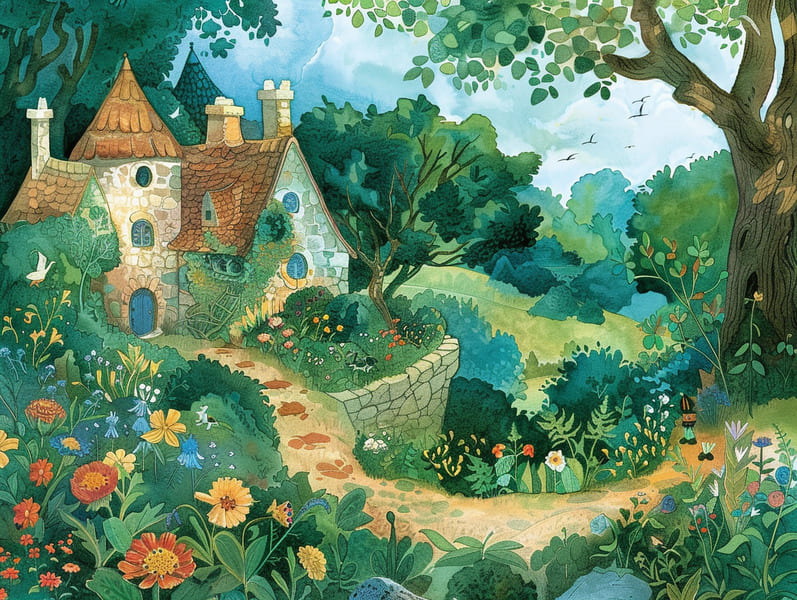Embracing the Beauty of Evening Narratives: Establishing Beloved Occasions with Your Little Ones
Embracing the Beauty of Evening Narratives: Establishing Beloved Occasions with Your Little Ones
Blog Article

Evening is a treasured time for kids and their parents. It’s a time to calm down, get cozy, and enjoy the wonder of stories.
For generations, stories for kids at bedtime have been a beloved practice, offering more than just a way to go to sleep. They provide an prospect for togetherness, learning, and fostering imagination.
Bedtime Stories: Why They Matter
Sleep stories for kids do more than a way to end the day. They play a significant role in a child’s maturation and in fortifying the family link. Here’s why they are beneficial:
1. Together Time: Telling bedtime tales creates a special bonding time between parents and children. It’s a moment of intimacy that helps children feel important and content.
2. Language Acquisition: Enjoying narratives helps children develop their language skills. They learn new vocabulary, understand sentence structures, and sharpen their understanding and comprehension abilities.
3. Imaginative Skills: Kids' stories carry them to fantastic worlds, encouraging dreams. They envision characters, settings, and adventures, which stimulates their creative thinking.
4. Emotional Growth: Stories for little ones often depict characters facing challenges and feelings. These stories help kids comprehend and work through their own moods, building emotional understanding.
5. Intellectual Growth: Engaging with a story helps children develop mindfulness, recollection, and reasoning skills. They develop to follow narratives, remember pieces, and predict outcomes.
How to Add Bedtime Stories to Your Routine
Developing a night-time practice that includes narrating bedtime stories is manageable and fulfilling. Here’s how to create a valued part of your evening tradition:
1. Pick a Snuggly Spot: Select a peaceful place where you and your child can get cozy without distractions. A snug bed or a cozy reading nook works beautifully.
2. Establish a Routine Time: Determine a regular time each night for bedtime reading. Routine helps children be ready and makes the routine easier to follow.
3. Choose Age-Fitting Stories: Find tales that are right for your child’s maturity. Toddlers might appreciate books with pictures with uncomplicated narratives, while older kids may be drawn to detailed stories with more involved stories.
4. Interact with the Story: Ensure the tale feel vivid by doing different tones and voices, adding special sounds, and asking your child to engage. Ask things about the story to maintain their interest.
5. Set a Relaxing Mood: Lower the lights, use whispers, and create a peaceful environment to help your child ease into rest.
How to Locate Bedtime Stories
There are abundant choices where you can find amazing bedtime stories for children. Here are some ideas to think about:
1. Kids’ Books: Explore your area library or bookstore to find a large selection of bedtime stories for kids. Browsing the choices together can be a fun activity that also lets children to pick stories that they are drawn to.
2. Web Resources: There are many online platforms that offer free bedtime stories. Sites like kids' story platforms provide a variety of short stories for kids that you can access. These choices are great for finding new and interesting stories without paying.
3. Apps for Storytelling: For nights when you’re too drained to read, try audiobooks or storytelling apps. These can provide a relaxing voice to read your child a story, ensuring they still get their bedtime story fix. Apps often offer fun elements that can hold their focus further.
4. Personal Stories: Design your own stories based on your child’s preferences. Personalized stories can be incredibly engaging and meaningful. You can include your child in the narration process, making them a part of the adventure.
The Good of Short Stories
Quick stories for bedtime are very useful for bedtime. They provide all the benefits of longer stories but are more compact, making them perfect for getting ready for bed before sleep. Here’s why short stories are a wonderful choice:
1. Clear and Simple: Concise narratives are straightforward and effortless for children to follow, even after a long day. They can quickly grasp the story and enjoy the story without losing interest.
2. Rapid Interest: Quick narratives readily engage children, catching their attention and curiosity. This makes them perfect for keeping bedtime habits effective yet enjoyable.
3. Wide Range: To-the-point tales make possible for variety in your bedtime tales. You can select a different story each night, keeping the routine engaging and exciting for your child.
4. Manages Time Well: For busy parents, short stories are a fast way to make sure children still get their nightly dose of storytelling. They fit well into a hectic schedule while still offering the full positives of a bedtime story.
The Magic of "Read Me a Story"
The simple phrase, “Will you read me a story?” can give a world of magic for children. Reacting to this request not only answers a child’s want for attention and engagement but also builds lasting experiences. Here’s why it’s magical:
1. Attachment: Telling tales to your child creates a read me a story deep emotional connection. It’s a time for attachment, sharing, and bonding.
2. Custom: Developing a bedtime story custom creates a cherished tradition that children wait for every night. It’s a ritual that can be handed down through generations.
3. Shared Learning: As you read, you’ll see your child’s advancement and progress. Their interest, reactions, and understanding of the stories evolve, offering insights into their developing minds.
4. Comfort Zone: Bedtime stories provide a safe space for children to understand emotions, face fears, and find comfort in the safe presence of a parent.
To Sum Up
Kids’ bedtime stories are a effective tool for nurturing a child’s maturation and building unforgettable moments of bonding.